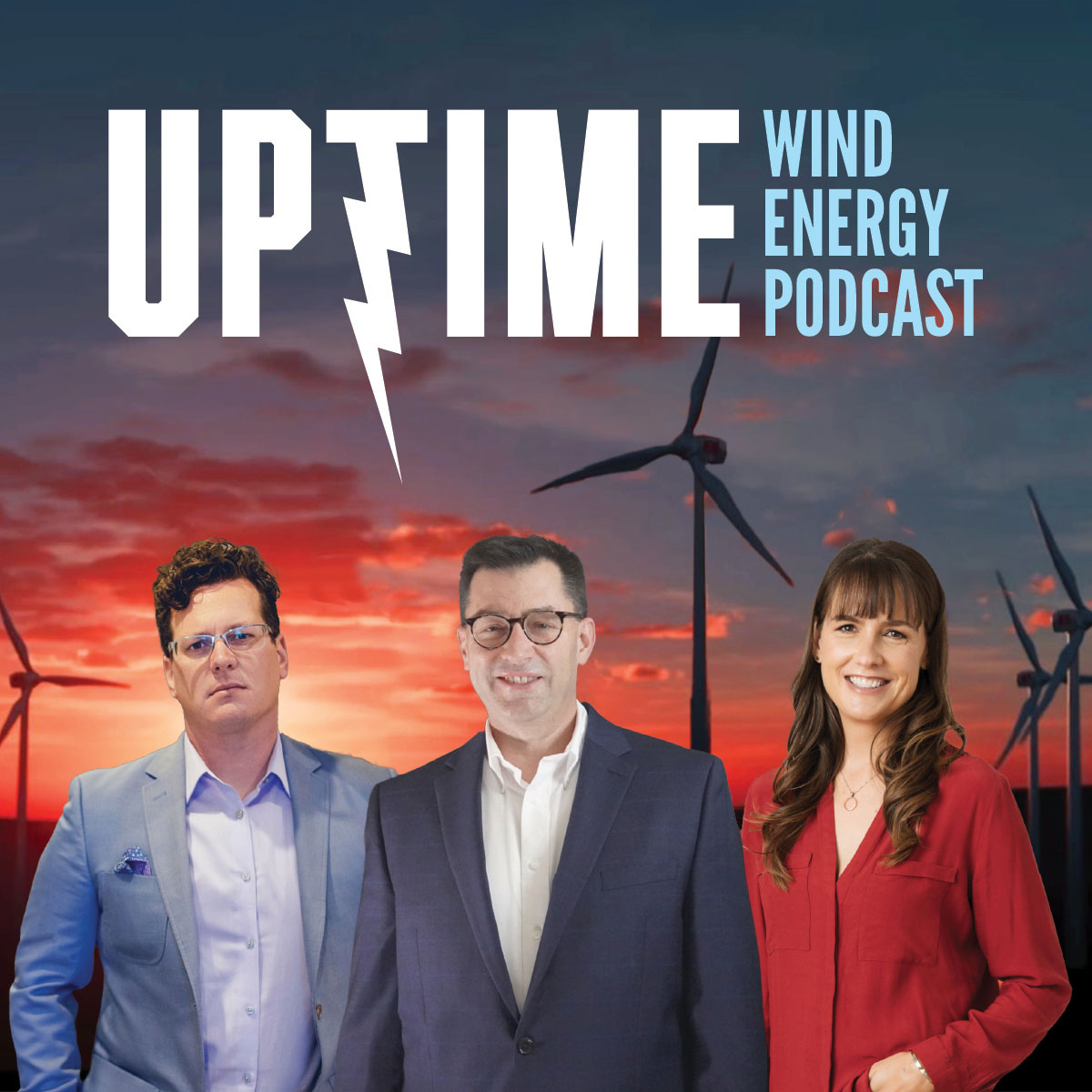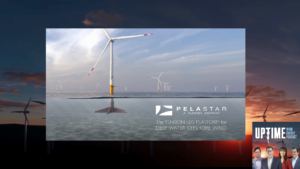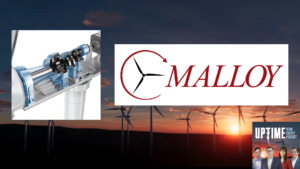Podcast: Play in new window | Download
Phil Totaro, Joel Saxum and Allen Hall discuss the latest Reuters news article regarding Siemens Gamesa shuttering sales offices and factories. What are the upcoming risks to Siemens Gamesa, and does the company have the financial resources to weather the upcoming headwinds?
Sign up now for Uptime Tech News, our weekly email update on all things wind technology. This episode is sponsored by Weather Guard Lightning Tech. Learn more about Weather Guard’s StrikeTape Wind Turbine LPS retrofit. Follow the show on Facebook, YouTube, Twitter, Linkedin and visit Weather Guard on the web. And subscribe to Rosemary Barnes’ YouTube channel here. Have a question we can answer on the show? Email us!
Pardalote Consulting – https://www.pardaloteconsulting.com
Weather Guard Lightning Tech – www.weatherguardwind.com
Intelstor – https://www.intelstor.com
News Flash 10-16-23
Allen Hall: I’m Allen Hall, president of Weather Guard Lightning Tech, and I’m here with the founder and CEO of Intelstor, Phil Totaro, and the Chief Commercial Officer of Weather Guard Lightning Tech, Joel Saxum. And this is your News Flash.
Big Reuters report from Siemens Energy where they’re considering shutting down some of the Siemens Gamesa factories and sales offices as part of a review aimed at reducing losses at the company. There’s been a number of discussions about this across the internet over the last couple of days. The plants have not been defined yet.
The sales offices have not been defined yet as what ones would likely go. However, it does put a lot of countries on end as there are a number of plants across the world that Siemens Gamesa has invested a good amount of time and money into. And although no final decisions have been made yet, we feel like and the news is from different sources that by early November or mid November, they are going to have this plant identified. And Phi, this is causing a little bit of upset in the marketplace in terms of the stock, but also in terms of the wind energy community as to where Siemens Energy and Siemens Gamesa is headed. There’s a lot of moving parts at the moment. How fast does Siemens Gamesa and Siemens Energy need to move to right this ship?
Philip Totaro: Fairly fast. And the reality of this is there’s a few different implications. First is that they probably want to be able to announce something in November at their Capital Markets Day event so watch out for that. The second aspect of this is, okay, obviously there’s a significant amount of investment in Denmark and in Spain.
And unfortunately, those are likely to potentially both or, there’s been talk in the past about potentially Spain might get shut down or outsourced a lot more than the resources that they have in Denmark, which was the legacy Siemens. And the legacy of the company, everything that’s core to Siemens in Germany and Denmark is something I think they want to keep hold of.
There are companies in Asia, that includes Chinese wind turbine OEMs and now Indian wind turbine OEMs like Adani Group and others, who are trying to get a bigger foothold in the West. Does this present an opportunity for them to dive in to a factory that’s already got overhead cranes, it’s already got molds, it’s already got other things?
Allen Hall: Now, Joel, with the closing of sales offices, that does not bode well for the future, right? You always want to have sales in action for next four or five years. That’s when you’d be booking orders out that far. If Siemens Gamesa limits their sales staff, doesn’t that just hurt their future tremendously? It seems like that’s a very short sighted approach to a longer term problem.
Why the move on the sales side?
Joel Saxum: In the article it states they operate 79 sites, including sales and service offices, R& D centers, as well as 15 factories to produce blades and nacelles. But a sales office is one thing that you could save a little bit of capital on, to be honest with you, Allen. Because you don’t have to stop your sales efforts, but to have a commercial leases and people going into the offices and all these different things, you don’t really need that.
That’s a nicety. 2. 3 billion dollars, you’re not going to save that by shutting down a sales office. So I think there’s just, there’s chunks across the board that are going to be taken out. Closing factories costs money as well. As wind energy professionals, we’re looking at this oh no, it looks like Siemens might be closing some factories, people are going to lose some jobs.
This is the biggest manufacturer of offshore wind turbines in the world. So that looks bad to us, but to Wall Street and to other investors, the, they see it as a, as they’re doing, making moves to, financially rectify their problems and the stock actually rose two and a half percent after they released this stuff after they released this, these these, this plan.
Allen Hall: Phil, the most important part of a company that is in a slow decline like Siemens Gamesa is at the moment are the investment banks. Because that’s where you’re going to have to go to tap equity to get through this rough patch. What are the investment banks thinking at this point?
Philip Totaro: They are still very nervous about the money that they’ve already put in and certainly nervous about putting anything extra in.
They’re hoping that Siemens Energy is gonna step up and keep floating Siemens Gamesa and keep, holding them up and bolstering. And frankly this plan is while unfortunate for the factory closures and the loss of jobs the plan is the necessary reality. It’s okay we can loan you a certain amount based on, whether it’s an invoice factoring type of thing or just other general purpose loans that they could provide for, anticipated revenue that Siemens Gamesa is going to have.
But at the end of the day, that’s going to be finite, and they need, they’re going to need more support, so they’re going to have to cut. And so the cuts are just a necessary evil to be able to right the ship.
Allen Hall: All right, Joel, so the supply chain, the existing supply chain for Siemens Gamesa is going to be in a little bit of a pinch where they’re going to be trying to reduce the number of suppliers most likely.
But those suppliers also have to be really concerned about getting paid. What is the supply chain going to need to get security on Siemens Gamesa going forward?
Joel Saxum: I think if I was in that supply chain, I’d be looking for basically a, almost a promissory note from Siemens, right? Their credit’s not looking too good on the street.
If you’re in their supply chain and they’re out, 60, 90 days and you’re a large supplier into the millions of dollars. It’s something that you might want to to insure in a certain way, if that makes sense. I do think there’ll be some shakeups within their supply chain, right?
As this investigation goes on with the group, they’re gonna, like we talked about, they had some possible issues within the supply chain of, Where did the quality issues come from? Whether that’s in, internal partners that they’re already using or external parties, they’re going to find that out and sniff it out.
I guess in, I hope they do for their own sake to understand where these issues are coming from. So I think you’ll see some. We may not hear of it in the news, right? It may be an, a thing that happens in the background. We may hear of it in a few years or something of that sort or on the street at the next wind turbine or wind energy conference.
But there will be some shakeups in the background and there’s openings there too, right? When that’s opportunity there’s opportunity in doubt and downturns for companies and there’s opportunity when you’re profiting. So when there’s a, somebody that might step out of line in the supply chain or be forced out of line in the supply chain.
There’s a possibility for more people to step into it.
Allen Hall: Phil, does that mean then in general, just watching other industrial companies go through this type of reorganization. It’s usually on the supply chain when they get the squeeze, the customer base still wants the product. They have a pipeline.
They may have orders out for five or 10 years, but the squeeze comes on the supply chain. If the supply chain stops supporting you, there’s really nothing you can do about it because you can’t stand up your own supply chain quick enough to keep the company going. Isn’t that where they should be putting a lot of the focus at the moment?
Philip Totaro: Exactly. They, what you just said, Allen is they can’t stand it up fast enough. There are other companies that would theoretically be capable of potentially stepping into that void, but they need to be qualified. They need to not only be qualified by Siemens Gamesa. They’re potentially gonna need to go through either DNV or TÜV or somebody’s, formal certification process.
That takes time, that costs money. They’re gonna have to, once that’s done, then all the banks and investors and everybody has to, and the insurance companies all have to sign off on that as well. There’s probably more pain coming for anybody paying attention, but there is hope because Siemens Gamesa does still maintain a reasonable
robust order book in, most of the markets where they are actively selling.
Joel Saxum: Two things not to be missed here, guys, is in the Reuters article that I read about this is two separate sources familiar with the matters they’re saying that they’re not going to remove leadership and right now a sale of Siemens Gamesa’s onshore division is currently seen as a major challenge.
So it looks, sounds like senior leadership’s not going anywhere and they’re not going to be able to sell the onshore division or are they’re not exploring it right now. So those two things could stay stable.
Allen Hall: So I think there’s two plays at the minute. Either Siemens AG steps up with cash. Or provides the equity funding by backing the enterprise for a short amount of time.
And when short amount of time, you’re talking four or five years probably at the moment. Or countries start stepping in. Spain, Germany, others come in and provide the financial loans at a reasonable price where it just provides stability. So the supply chain keeps providing Siemens Gamesa with parts.
Because if they can’t provide them with parts, there’s no way to get out of this hole. If you’d like to learn more about mergers, acquisitions, and partnerships, visit our friends at intelstor.com.











